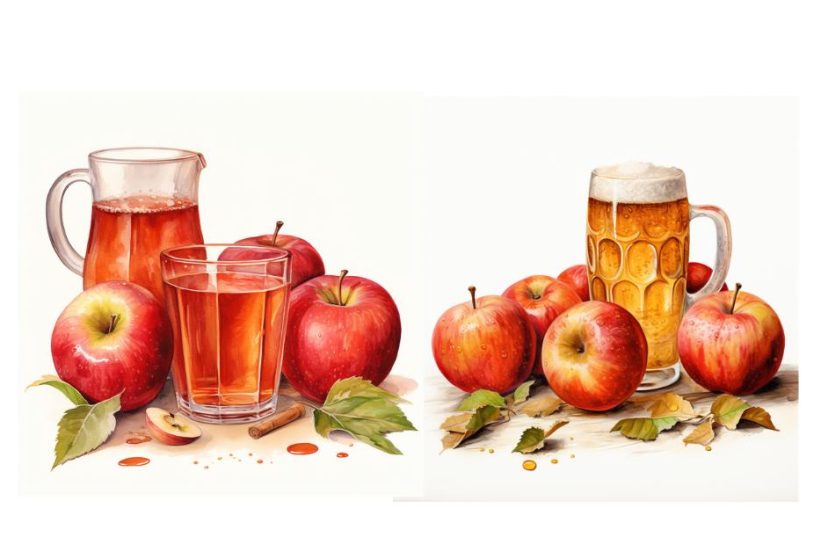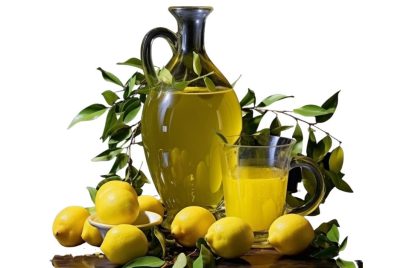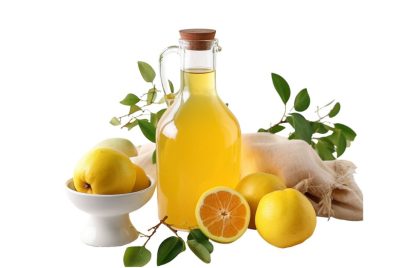What’s the Difference Between Apple Cider and Apple Juice?
A Comprehensive Guide to Understanding the Variances and Making Informed Choices
As a passionate enthusiast and advisor in the world of juicing for health, I often come across a common question: What’s the difference between apple cider and apple juice? While both beverages are derived from apples, there are distinct variations in their production, nutritional composition, flavor profiles, and more. In this article, we will delve into the depths of apple cider and apple juice, providing helpful suggestions and reasons to aid you in making informed decisions for your juicing adventures.
Definition of Apple Cider
Apple cider is a beverage made by pressing fresh apples and extracting their juices. The process involves crushing the apples, usually including the skin and core, to extract the liquid. The resulting cider is typically unfiltered and retains the natural sediments and fibers from the apples, giving it a rich and robust flavor.
Definition of Apple Juice
In contrast to apple cider, apple juice undergoes further processing steps to obtain a clear and filtered liquid. The apples are pressed to extract the juice, which is then strained to remove any solids, including sediments and pulp. The resulting juice is typically lighter in color, clearer in appearance, and has a smoother texture compared to apple cider.
Nutritional Differences
When it comes to nutrition they have some variations. Apple cider, with its unfiltered nature, tends to retain more nutrients and dietary fiber. The natural sediments present in cider contribute to its slightly higher fiber content compared to apple juice. However, both beverages offer essential vitamins, minerals, and antioxidants found in apples, such as vitamin C and potassium.
Flavor and Texture
The flavor profiles and textures differ significantly. Apple cider, with its unfiltered nature and inclusion of apple skin and pulp, has a more pronounced apple taste. It offers a delightful blend of sweetness and tartness, often accompanied by earthy undertones. On the other hand, apple juice, with its clear and filtered composition, tends to have a milder and sweeter flavor, devoid of the robustness found in cider. Additionally, apple juice generally has a smoother and more liquid consistency.
Processing Methods
The divergent processing methods contribute to the disparities between them. Apple cider is typically produced through a simple pressing and filtering process, with minimal intervention. The emphasis is on preserving the natural flavors and characteristics of the apples. In contrast, apple juice undergoes filtration to remove any solids, resulting in a clearer appearance and a more consistent texture.
Health Benefits
Both offer potential health benefits, thanks to the valuable nutrients present in apples. The antioxidants found in these beverages can help combat oxidative stress and support a healthy immune system. The dietary fiber in apple cider may promote digestive health and contribute to a feeling of fullness. However, it’s worth noting that the specific health benefits may vary depending on the quality of the product and individual dietary needs.
Uses and Applications
Either can be utilized in various recipes and culinary creations. Apple cider, with its bold flavor, is often enjoyed on its own, hot or cold, during the fall season. It serves as a delightful base for mulled cider, a warming beverage infused with spices and citrus. Additionally, apple cider can be incorporated into baking recipes, marinades, and salad dressings, adding a unique twist to the dishes. On the other hand, apple juice, with its milder taste, is commonly consumed as a refreshing beverage on its own or mixed with other juices. It can also be used as a versatile ingredient in smoothies, cocktails, and sauces.
Freshness and Shelf Life
Due to the differences in processing, they also vary in terms of freshness and shelf life. Apple cider, especially when homemade or produced by local farms, is often consumed when it is freshly pressed. It is best enjoyed within a few days to a week, as it may ferment or develop off-flavors if stored for extended periods. In contrast, commercially available apple juice is pasteurized and undergoes a more rigorous preservation process, granting it a longer shelf life. Sealed apple juice bottles or cartons can typically be stored for several months before opening, but it’s essential to check the expiration date and follow storage instructions for optimal quality.
Consumer Preferences
Consumer preferences play a crucial role in the popularity of either one. Some individuals prefer the rustic charm and bolder taste of apple cider, valuing its natural and unfiltered qualities. Others gravitate towards the mild sweetness and clarity of apple juice. Personal taste, texture preferences, and seasonal associations often influence the choices made between these two beverages.
Choosing the Right Option
When selecting between them, several factors come into play. Consider the occasion, your personal taste preferences, and the intended use of the beverage. If you desire a robust apple flavor, enjoy the natural sediments, and wish to experience the full-bodied goodness of apples, apple cider is the way to go. On the other hand, if you prefer a lighter and smoother taste, along with a more transparent appearance, apple juice will satisfy your palate.
Organic and Non-Organic Options
Both are available in organic and non-organic variants. Organic options are produced using apples grown without synthetic pesticides or fertilizers, adhering to organic farming practices. They offer a more natural and environmentally friendly choice. Non-organic options, while more readily available, may utilize conventional apple farming methods. Consider your personal preferences, budget, and the importance of organic produce when deciding between the two.
Homemade vs. Store-Bought
Another consideration is whether to make apple cider or apple juice at home or purchase them from stores. Making your own cider or juice allows you to have complete control over the ingredients, ensuring freshness and customization. It can be a fun and rewarding experience, especially during apple-picking season. However, it requires time, effort, and access to a juicer or cider press. Store-bought options offer convenience and a wider variety of brands and flavors. They are readily available throughout the year, saving you the labor-intensive process of extraction.
Price Range
The price range for apple cider and apple juice varies depending on several factors, including the brand, quality, packaging, and region. Generally, apple cider, particularly artisanal or small-batch varieties, tends to be slightly more expensive than apple juice. Local farm markets or specialized stores often offer premium cider options, which may come at a higher cost due to the production methods and limited availability. Conversely, apple juice, especially when produced on a larger scale, tends to be more affordable and accessible.
Conclusion
In conclusion, the difference between both lies in their production methods, nutritional composition, flavor profiles, and consumer preferences. Apple cider retains the natural sediments and offers a robust taste, while apple juice is clear, filtered, and provides a milder flavor. Both beverages have their unique qualities and potential health benefits. When choosing between them, consider your taste preferences, the occasion, and the desired use. Whether you opt for the rustic charm of cider or the smooth sweetness of juice, both can be enjoyed as refreshing and versatile additions to your juicing repertoire.
FAQs
1. Can I substitute apple cider for apple juice in recipes? Absolutely! While apple cider may impart a stronger flavor, it can be used as a substitute for apple juice in most recipes. Just keep in mind that the final taste may vary slightly.
2. Is apple cider vinegar the same as apple cider? No, apple cider vinegar is different from apple cider. Apple cider vinegar is made through a fermentation process, which converts the sugars in apple cider into acetic acid.
3. Are there any potential allergic reactions to apple cider or apple juice? While rare, some individuals may have allergies or sensitivities to apples. If you have known allergies to apples or experience any adverse reactions after consuming apple products, it is advisable to consult a healthcare professional.
4. Can I freeze apple cider or apple juice for long-term storage? Yes, both apple cider and apple juice can be frozen for extended periods. However, it’s important to use suitable containers, leaving enough headspace to accommodate expansion during freezing.
5. Are there any specific apple varieties recommended for making cider or juice? Certain apple varieties are favored for cider or juice production due to their flavor profiles and sugar content. Popular choices for cider include bittersweet or tart apples like Kingston Black or Granny Smith. For juice, sweeter apple varieties like Gala or Fuji are commonly used. However, feel free to experiment with different apple types to find your preferred taste.
Other Resources
Here are two links that provide scientific studies and commentaries related to the health benefits and nutritional content of apple juice and apple cider:




